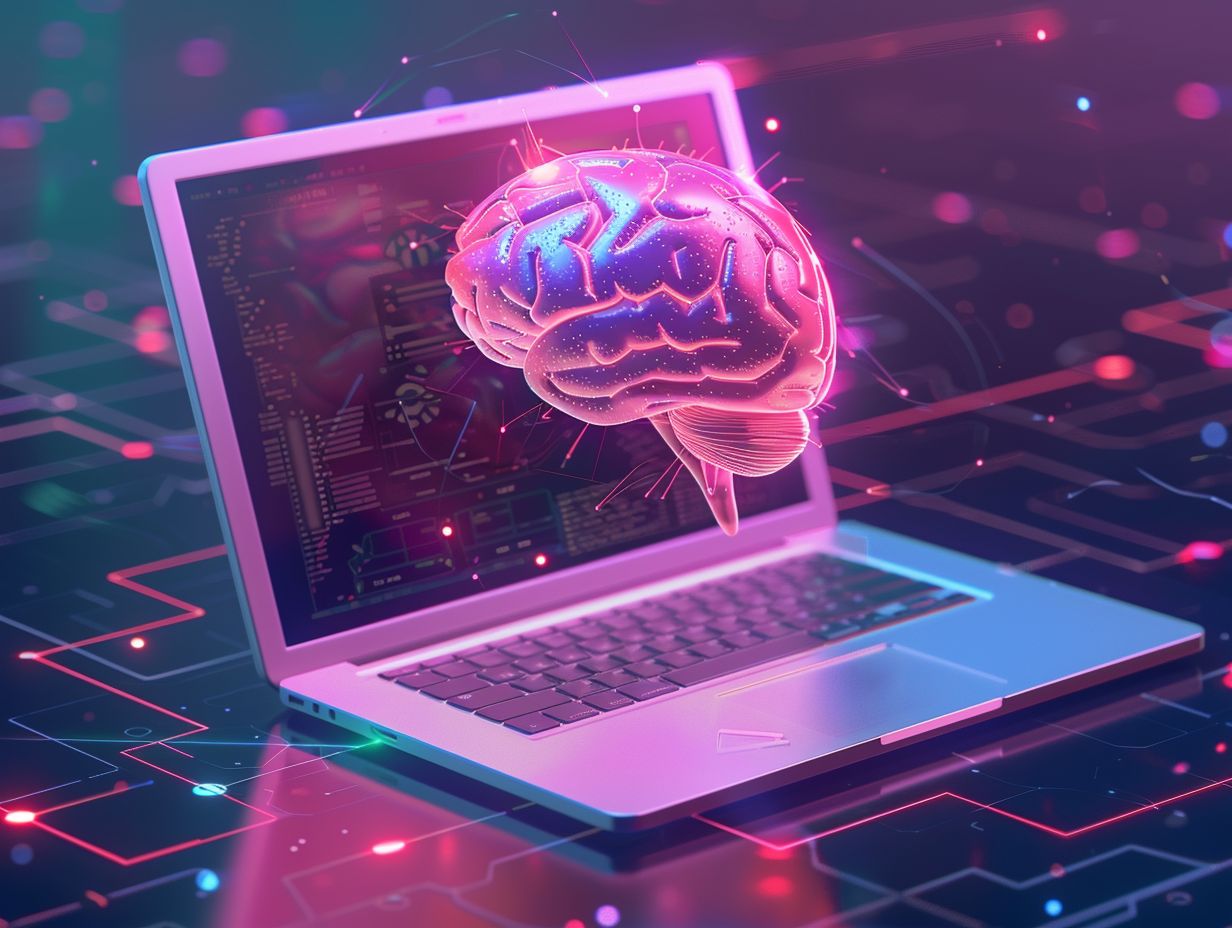In today’s digital age, the role of artificial intelligence (AI) in personalizing online learning is becoming increasingly significant.
From individualized instruction to adaptive learning, AI is revolutionizing the way education is delivered and received.
This article will explore the benefits of AI in online learning, including improved learning outcomes and enhanced student engagement.
It will also delve into the challenges and concerns surrounding AI, such as data privacy and bias.
By implementing best practices for ethical and effective use of AI, you can ensure that the future of online learning is truly personalized and transformative.
Key Takeaways:
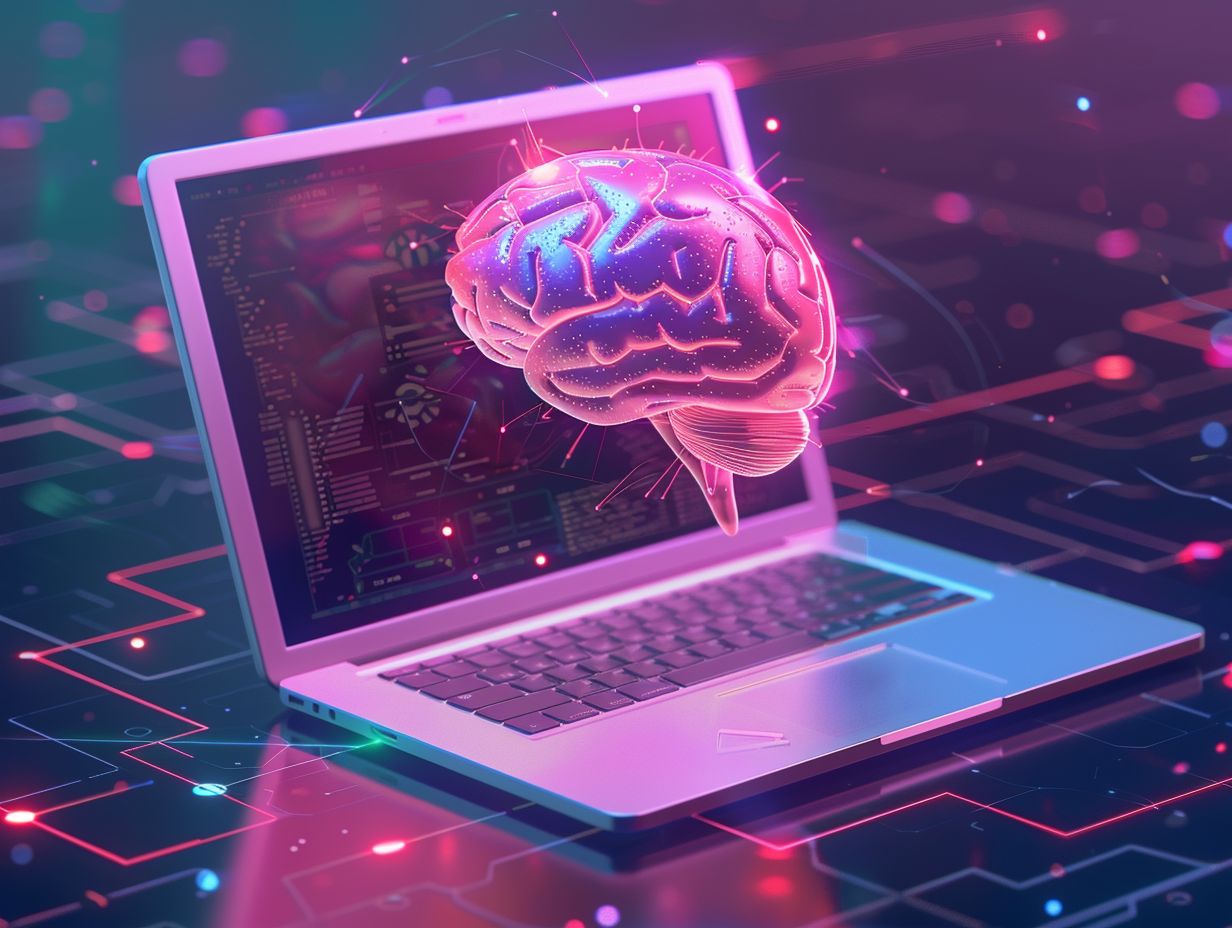
Defining Personalized Learning and its Benefits
Personalized learning is an approach that tailors education to your unique needs, interests, and capabilities, leveraging AI technology to provide you with individualized guidance and adaptive learning pathways.
By customizing your learning experience, personalized learning enables you to engage with the curriculum in a way that resonates with you. This approach fosters a deeper level of understanding and mastery of concepts as you receive content that matches your specific learning style. As a result, you will be more motivated and inspired to explore new topics and challenges, leading to improved academic performance and retention of knowledge. AI algorithms play a crucial role in analyzing your data and preferences to deliver targeted content and feedback, creating a dynamic and interactive educational environment.
The Impact of AI on Online Learning
AI revolutionizes online learning by providing personalized recommendations, intelligent chatbots for support, and advanced data analytics to improve student performance and engagement.
How AI is Changing the Landscape of Education
The integration of AI in education is reshaping traditional teaching methods by leveraging AI algorithms to analyze student data, personalize learning experiences, and provide adaptive feedback for continuous improvement.
This technological advancement has revolutionized the way educators approach curriculum design, enabling tailored instruction that caters to each student’s unique learning pace and style. By harnessing AI tools such as intelligent tutoring systems and virtual classroom assistants, educators can create dynamic, interactive learning environments that foster engagement and collaboration among students. AI-driven analytics enable schools and institutions to make evidence-based decisions, pinpoint areas of improvement, and track student progress more effectively.
The future of education is undoubtedly being transformed by the powerful capabilities of AI technology.
Benefits of AI in Personalizing Online Learning
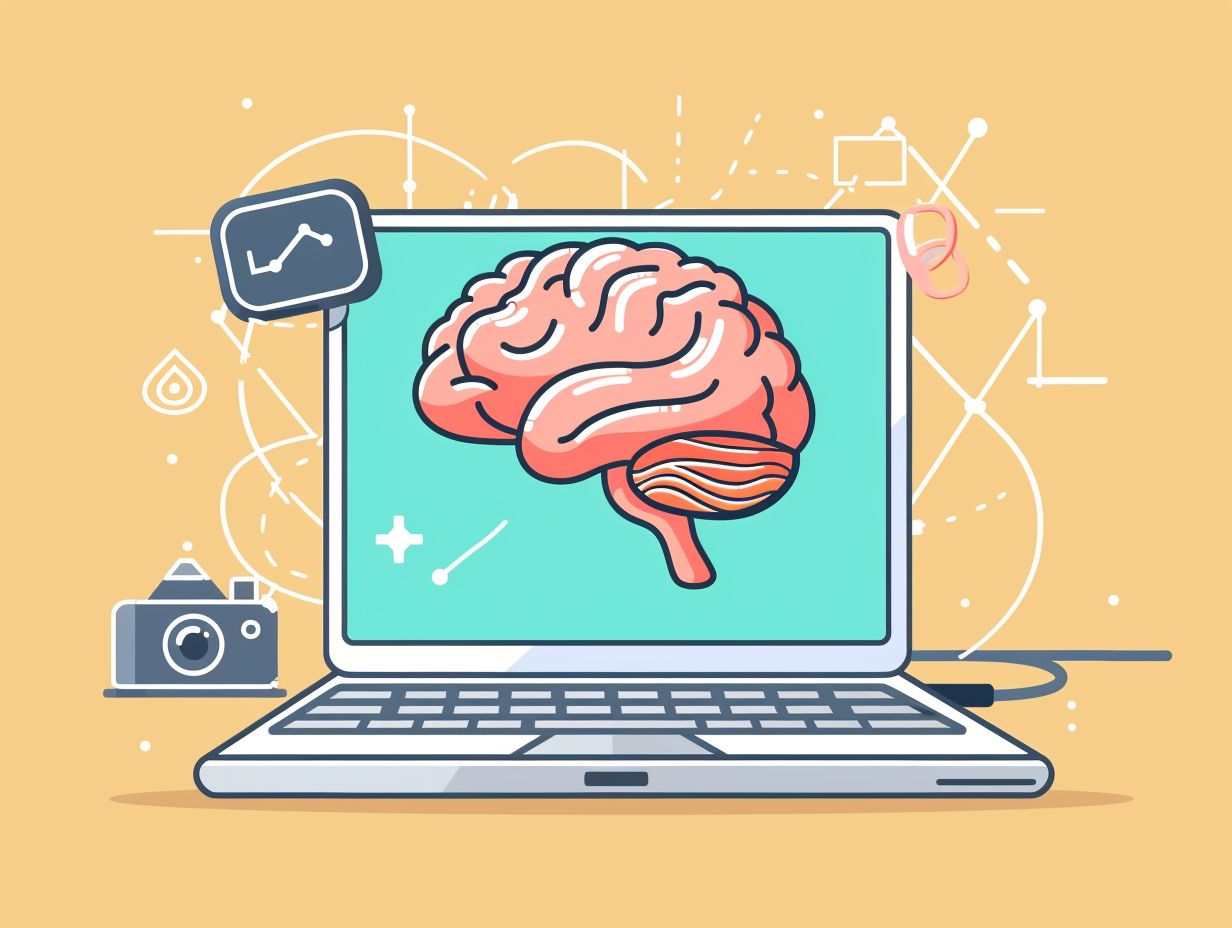
You can leverage AI to realize a multitude of advantages in customizing online learning, such as enhancing student performance, providing tailored learning experiences, and offering personalized recommendations that adjust to individual needs.
Individualized Instruction and Adaptive Learning
Individualized instruction and adaptive learning pathways enable you to progress at your own pace, providing tailored support and guidance to address your unique learning needs.
Personalized guidance allows you to develop a deeper understanding of the subject matter, leading to increased retention and application of knowledge. By catering to your learning style and pace, educators can create a more inclusive and effective learning environment.
Adaptive learning strategies enable you to feel more confident and motivated, as you are challenged at the right level to stimulate academic growth. This personalized approach also fosters a sense of ownership over your learning journey, promoting personal development and self-directed learning skills.
Improved Learning Outcomes
AI algorithms play a crucial role in improving learning outcomes by analyzing student performance data, offering personalized recommendations, and adapting educational content to optimize your success.
These algorithms have the ability to identify areas where you may be struggling and provide targeted interventions to help you improve. By analyzing patterns in your behavior and performance, AI can predict your future learning needs and tailor educational materials to suit your individual learning style. This personalized approach not only boosts your academic achievements but also fosters a deeper engagement with the subject matter, leading to a more enriching and effective learning experience for you.
Challenges and Concerns with AI in Online Learning
When integrating AI into online learning, you may encounter challenges related to data privacy, potential bias in algorithms, and ethical considerations that require thorough examination and mitigation.
Data Privacy and Bias
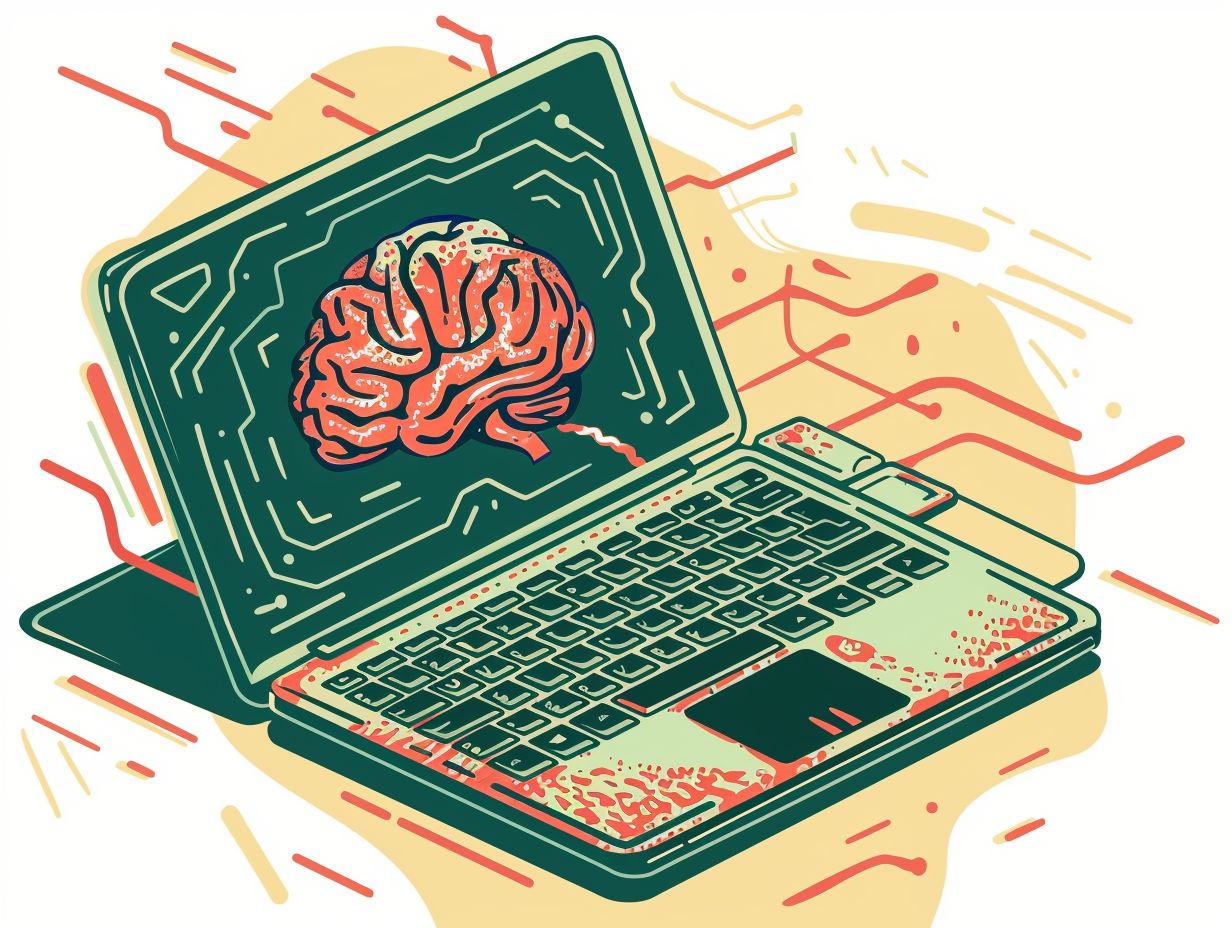
When utilizing AI for online learning, it is imperative to consider data privacy and bias. Safeguarding student data and ensuring algorithmic fairness are crucial elements in maintaining trust and equity.
In today’s digital age, ensuring the security of personal information is of utmost importance, particularly with the rise of educational technology. Organizations should implement strong encryption methods and secure storage practices to safeguard sensitive data from potential breaches. Addressing bias in AI applications requires regular audits and monitoring to identify and correct any unfair outcomes. Promoting transparency in algorithms can be achieved through open-source development and clear explanation of decision-making processes. This fosters trust in the technology utilized within online learning environments by both students and educators.
Best Practices for Implementing AI in Online Learning
Utilizing AI in online learning necessitates a dedication to ethical and efficient practices that prioritize student well-being, data integrity, and responsible deployment of AI to enhance learning outcomes.
Ensuring Ethical and Effective Use of AI
Ensuring the ethical and effective use of AI in education requires transparent educational strategies, proactive privacy safeguards, and continuous monitoring to address potential ethical dilemmas and privacy concerns.
When integrating AI technologies into educational settings, it is crucial for you to have clear guidelines and protocols in place to ensure that student data is kept secure and used responsibly. By promoting transparency in how AI algorithms are designed and utilized, you can enhance trust in these technologies. Safeguarding privacy through measures such as data encryption and access controls is essential for upholding student privacy rights.
Navigating the complex ethical challenges associated with AI in education demands a collaborative approach involving diverse stakeholders, including educators, technologists, and policymakers.
Frequently Asked Questions
1. What is the role of AI in personalizing online learning?
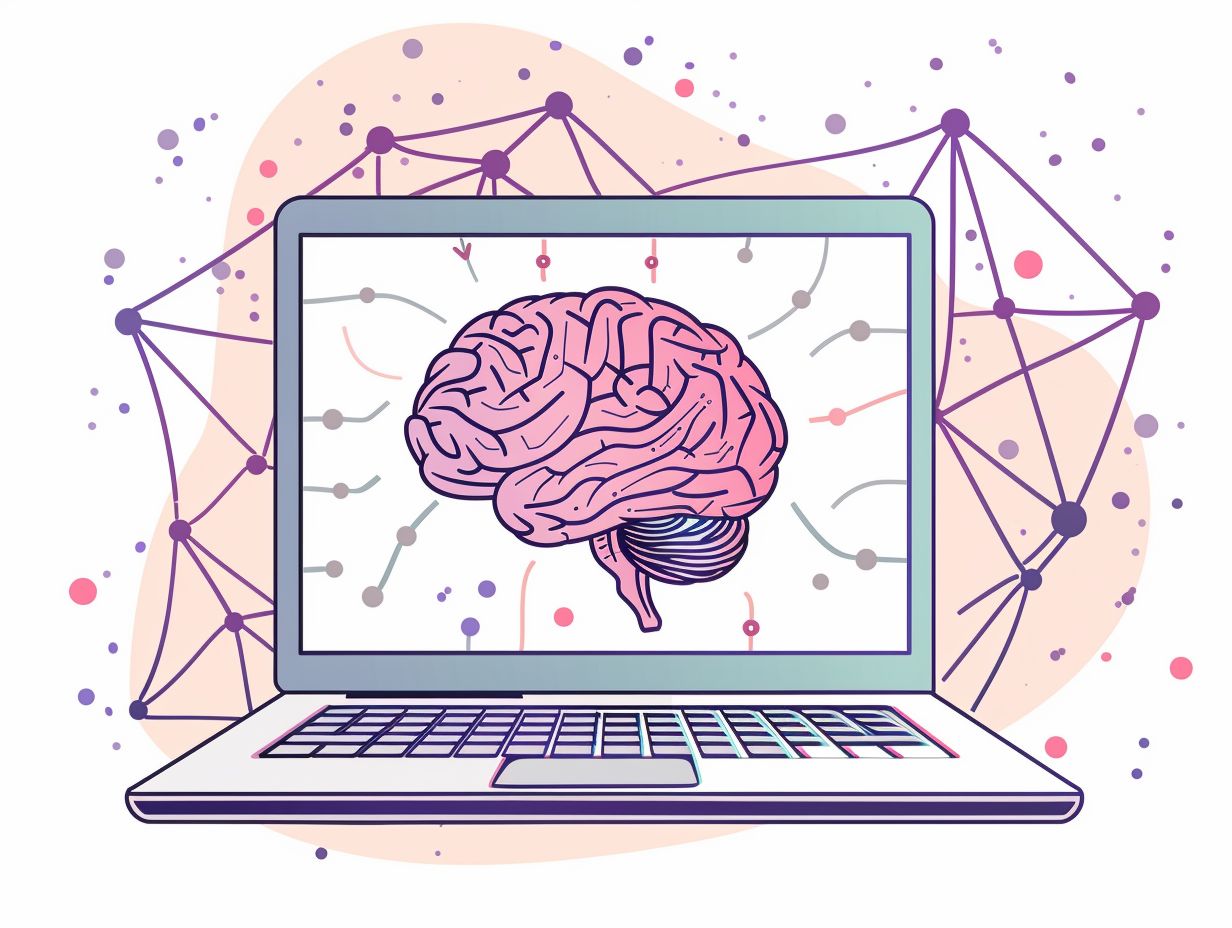
AI plays a crucial role in personalizing online learning by using algorithms to analyze student data and provide customized learning experiences.
2. How does AI personalize online learning?
AI personalizes online learning by tracking student progress, identifying learning gaps, and providing tailored recommendations for study materials and resources.
3. Can AI personalize online learning for individual students?
Yes, AI can personalize online learning for individual students by utilizing data such as learning styles, preferences, and previous performance to create a customized learning experience.
4. Is AI used in all types of online learning?
AI is used in various types of online learning, including adaptive learning platforms, intelligent tutoring systems, and virtual reality simulations.
5. What are the benefits of using AI for personalizing online learning?
The benefits of using AI for personalizing online learning include increased engagement, improved retention and understanding, and a more efficient use of study time.
6. Is AI reliable for personalizing online learning?
Yes, AI has been proven to be reliable in personalizing online learning by providing accurate recommendations and adapting to student needs in real-time.

